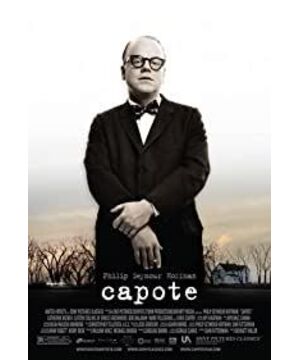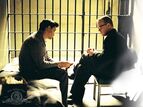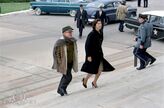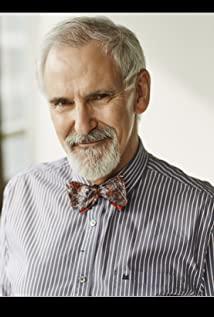1. The symbol of baby food and childhood memories. Both Capote and Perry were similarly burdened by their childhoods, and the tragic isolation and abandonment of their childhoods created their twisted personalities - a hunger for attention, a desire to achieve something. Capote goes to the supermarket to buy baby food, only to be provoked by a weird kid with a gun, suggesting that he is playing Perry like a child in his hands, but he is entangled in this dangerous relationship. Later, he fed himself complementary food mixed with wine, which also proved that he himself had been pulled into this swamp and became like Perry in prison. Perhaps Capote also saw another possible self in Perry. If he hadn't gone out from the "front door", if he had not been accepted by the senior class in New York, he might have become this kind of person who felt "ashed" for himself.
2. Speech. Capote's reading club and Perry's confession before his execution are all kinds of speeches. They all urgently need the spotlight and a stage because of their lack of self-esteem. Capote read Thank you at the end, and Thank you with an exclamation mark at the end of Perry's notes all reflect that these two people are more or less dependent on the affirmation of others to live. Perry was confirmed by the terrified eyes of Clutters' father that he couldn't get such an affirmation, fully aware that he was marginalized by society, and killed four people on impulse; Capote enjoyed being surrounded by people in New York social circles, he He will even take other people's sincere and slightly clumsy praise as a laughing stock, and highlight his humor to get more laughter. His self-worth is more based on external fame and fortune. He only sees himself in his eyes, and his self-show and glamour display are also a kind of self-protection mechanism. This is also a clear contrast to the humble, decent Nuelle (the film also hints at gender equality and racial issues in the society at that time, so I won't mention it in detail).
View more about Capote reviews











